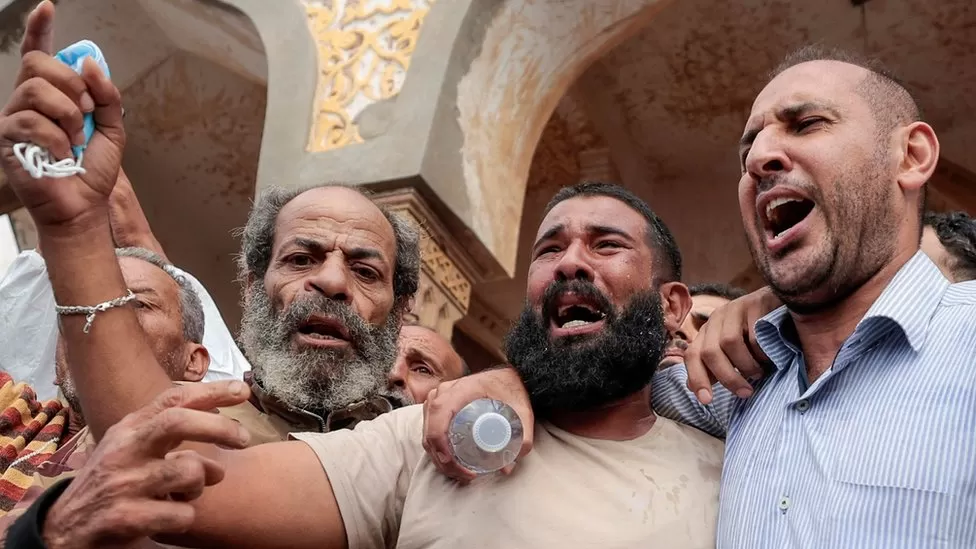In the wake of last week’s devastating flood, hundreds of protesters gathered in the Libyan city of Derna, demanding answers and accountability. The demonstrations took a violent turn when the mayor’s residence was set ablaze, intensifying the public’s anger towards top officials in Libya’s eastern government.
The protests began on Monday night at the Sahaba Mosque, a prominent landmark in Derna. Chants calling for the dismissal of high-ranking officials echoed through the streets as demonstrators expressed their frustration. As a result, the entire city council of Derna has been dismissed.
In response to the unrest, the government has taken measures to suppress information flow by shutting down internet and telephone access. Journalists have also been ordered to leave, marking a media crackdown in the region.
The catastrophic flood, caused by the bursting of two old and dilapidated dams, has left over 10,000 people officially missing. The death toll, which has been subject to varying reports, is estimated to be close to 4,000 according to the United Nations.
The UN has faced obstacles in providing assistance to the affected areas. One of its teams was denied permission to enter Derna, hindering search and rescue efforts. However, existing UN teams, emergency medical personnel, and humanitarian workers continue to operate in the region.
Residents of Derna hold officials responsible for the lack of warning and evacuation measures prior to the flood. They believe that authorities were aware of the impending heavy rainfall but failed to adequately inform the public. Officials deny these allegations, stating that a stay-at-home warning was issued.
Since the overthrow of former leader Muammar Gaddafi, Libya has been plagued by power struggles, resulting in the existence of two governments. The UN-recognized government is based in Tripoli, while another government in the east is backed by warlord Gen Khalifa Haftar.
Haftar has labeled the flooding as a natural disaster, but many Libyans disagree. They argue that the eastern government neglected the dams despite prior warnings about their deteriorating condition.
Abdelqader al-Omrani, a resident living near the dams, claims that he and others had alerted the municipality about leaks two years ago, demanding repairs. “They [now] have our deaths on their conscience,” he said from his hospital bed in Benghazi.
Scientists from the World Weather Attribution group have attributed the severity of the disaster to Libya’s ongoing conflict and poor dam maintenance. They also noted that global warming caused by human activity led to a 50% increase in rainfall in eastern Libya.
In response to the protests, the eastern government ordered all journalists to leave Derna, accusing them of obstructing rescue operations. Critics argue that this move is an attempt to punish the residents of Derna for their dissent.
Despite international aid efforts, there are concerns about a potential public health crisis in the region. Demonstrators are calling for increased aid and the establishment of processing facilities to replace lost passports and identity documents.
The protests at the Sahaba Mosque, which suffered partial damage from the flood, marked the largest demonstrations since the disaster struck. There are indications that the protest movement may have institutional support, further highlighting the depth of public discontent in Derna.
